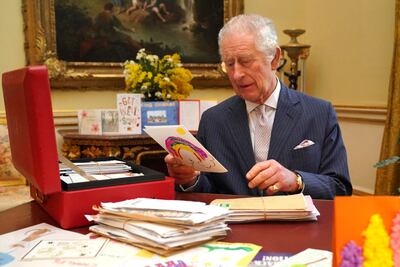As a BBC journalist, I often avoided British “royal reporting”. The death of Princess Diana, or the state opening of Parliament were obvious exceptions, but I loathed (and still loathe) the silliness that so much “royal reporting” often seems to involve.
On one occasion, in Washington, I covered the visit of Queen Elizabeth II. One highlight was her speech at the White House. Staff set up the podium for the height of the president, George HW Bush, but he was considerably taller than the Queen, and so when the Queen went to speak at the microphone the main “heads-on” camera showed only what looked like her talking hat. Since there were half a dozen other television cameras available, I made sure we used the side shots showing the Queen speaking to the audience.
Other networks stayed on the “talking hat” – and that humorous glitch made the news bulletins. It was gentle fun, but I cannot bear this bizarre mixture of respect coupled with trivia that so often features in royal reporting.
Over the years, I did meet royal family members and their views were clear. At a social event the Queen’s husband, Prince Philip, once joined a conversation I was having with a prominent American journalist. The Prince dismissed “royal reporting” as “mere gossip and tittle tattle”. Mostly, I agree. And so, fast forward to the past few weeks of bizarre – and offensive – gossip and tittle tattle about the British royals.

But first, a relevant fact. Statistically, one in two of us alive now will develop some form of cancer. Perhaps you, me, and plenty of people we know. And so when the Princess of Wales, the wife of the British heir to the throne affectionately known as “Kate”, a woman who will be Queen of the United Kingdom one day, disappeared from public view for unspecified hospital treatment, it was not surprising that there was considerable public speculation.
Her cancer diagnosis was eventually made public. But during the news vacuum, “royal reporting” turned on the release of a photoshopped picture of the Princess and her children.
The result was one of the most bizarre media feeding frenzies imaginable. Over the years, I have met many Royal staff and they are generally extremely talented and on-the-ball people. In this case, someone made an unfortunate mistake, allowing the release of the photoshopped image, which was then recalled by newspapers. The gaggle of self-identified “royal experts” then pontificated about what all this meant. They were given platforms in newspapers, on radio and television to drone on at length, often quoting anonymous “sources” revealing nothing much beyond a lack of reliable knowledge.
Nature abhors a vacuum. Social media abhors an information vacuum. Foreign broadcasters went wild with unsubstantiated theories and lurid gossip appeared online. The hurt to a family – royal or otherwise – going through the trauma of serious illness is unimaginable. And so now that the immediate wave of hysteria has broken, perhaps we can take a deep breath and understand what we have actually learnt.
First, people in positions of great power and privilege are – guess what? – human beings. They have the good points and the frailties of the rest of us. King Charles III is also receiving medical treatment – again, not unusual for a man in his seventies. Let’s give him some space to recover without more wild speculation.
Second, the public worldwide, and the British public in particular, will inevitably be curious about the British royal family. Curiosity sells newspapers and engages TV viewers. But feeding this beast produces a great deal of junk journalism. Illness demands privacy.
Third, (as I noted here before) we should all be suspicious of self-described royal experts. Some scholars and a few rigorous writers and commentators do fit that description. Others pretend to know royal secrets to further their careers, turning real lives into marketable commodities.
Fourth, social media is useful and fun, but it can encourage the herd to jump off the information cliff. Fifth – a bit to my surprise – British popular tabloid newspapers were largely cautious and respectful about the Kate stories. Good. Perhaps they might also consider how they handle stories about Harry and Meghan, rather than always painting them as villains in some royal soap opera.
Sixth and finally, can we all have a bit of empathy? In The Merchant of Venice, Shakespeare wrote of our common humanity: “If you prick us, do we not bleed? If you tickle us, do we not laugh?”
Sure, we love gossip about people in power and their frailties, but they bleed and laugh, too. The stumbles of US President Joe Biden make headlines, but that’s also why I feel empathy for him, since I have a clumsy lifetime of tripping over my own feet.
And so maybe, then, there is some good news salvageable from what Prince Philip called the “gossip and tittle tattle”. Our future Queen emerges as an admirable figure. We can wish her a speedy recovery, while learning the clear lesson of this royal saga. We all need to consider which media sources can be trusted and which are simply toxic.







